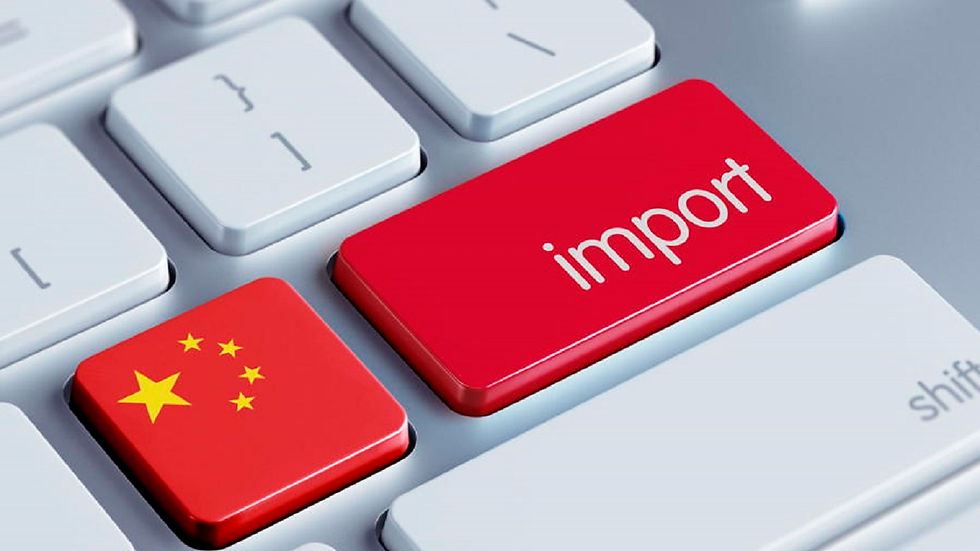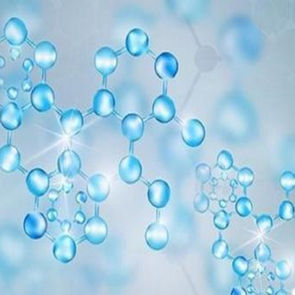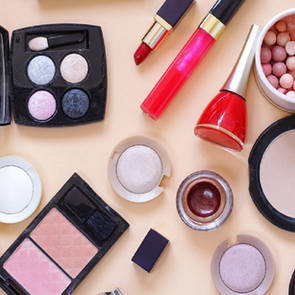
Niche Market Research
Study into the niche product market, producing whitepaper helpping business to understand the potential, development of a product and make decisions.
Get the Best of CHAILEEDO
Top 10 Must-Know Cosmetics Policies Before You Enter China's Market

1. How are cosmetics classified in China?
According to the Cosmetic Supervision and Administration Regulation (CSAR), "Cosmetics" herein refers to daily chemical products intended to be applied to the external part of the human body, e.g. skin, hair, nails, lips, mouth, etc., by spreading, spraying or other similar ways for cleansing, protecting, beautifying or grooming purposes.
The National Medical Products Administration (NMPA) shall implement classified management of cosmetics and cosmetics ingredients based on the risk assessment, dividing them into special cosmetics and general cosmetics. Special cosmetics are used for hair dying, perming, spot removal and whitening, sun protection, hair loss prevention, and cosmetics claiming new effects. The state implements registration management for special cosmetics and record management for ordinary cosmetics.
2. Is animal testing required before entering the Chinese market?
Article 33 of Provisions for Management of Cosmetic Registration and Notification Dossiers states that if the manufacturer of ordinary cosmetics has obtained the production quality management system-related certifications issued by the competent government departments of the country (region), and product safety risk assessment results can fully confirm the safety of the product, the product can be exempted from the submission of toxicological test reports. Except for the following cases:
-
the product claims for infant and child use.
-
the product uses new cosmetic ingredients that are still under safety monitoring.
-
according to the quantitative grading score results, the filer, the responsible person in the territory, and the production enterprise is listed as key regulatory target.
This means that products with the qualification of the government authorities in the place of production may be exempt from animal testing. Some countries have previously acted, such as Agence Nationale de Sécurité du Médicament et des Produits de Santé (ANSM) has launched an online certification platform that allows French cosmetics manufacturers to apply for production quality management system qualification certificates through the platform. The UK authorities are also promoting a solution for the issuance of GMP certificates that meet the requirements of NMPA. In the future, more products and brands from these countries are expected to enjoy the new policy of animal testing exemption to enter the Chinese market.
3. What you need to bring your products into China?
Article 26 of Provisions for Management of Cosmetic Registration and Notification Dossiers states that the registrant or filer for registration or filing shall submit the following 7 parts of profiles.
-
Cosmetics Registration and Notification Information Form and related information
-
the product name and related information
-
the product formula
-
the product implementation of the standard
-
product labeling samples
-
product inspection reports
-
product safety assessment information
4. What obligations do foreign companies need to fulfill to enter the Chinese market?
Article 8 of Administrative Measures on Cosmetics Registration and Notification points out that Overseas registration applicants and notification applicants shall designate an enterprise legal person within the territory of China as the domestic responsible person who shall fulfill the following obligations:
1, Handle registration or notification of cosmetics and new cosmetic ingredients in the name of the registration applicant or notification applicant;
2, Assist the registration applicant or notification applicant in cosmetic adverse reaction monitoring, new cosmetic ingredient safety monitoring and reporting;
3, Assist the registration applicant or notification applicant in recall of cosmetics and new cosmetic ingredients;
4, Assume the corresponding quality and safety responsibilities for cosmetics and new
cosmetic ingredients that are put on the domestic market in accordance with the agreement with the registration applicant or notification applicant;
5, Cooperate with the supervision and inspection of the medical products administration departments.
5. What are the requirements for the labeling of cosmetics sold in China?
Article 6 of Administrative Provisions on Cosmetics Labeling states that cosmetics should have Chinese labels. Chinese labels should use standard Chinese characters. If the use of other words or symbols, the product sales package should be used on the visible surface of the corresponding explanation of standard Chinese characters, except for Web sites, the names and addresses of foreign companies, and conventional terminology that must use other words.
If the product label has the same foreign language registered trademark on more than one visible surface, it can use only one of the visual surfaces of the corresponding explanation in normative Chinese characters.
6. How to determine whether a product is imported into China? (How to determine whether a product belongs to imported products in China?)
Article 61 of Administrative Measures on Cosmetics Registration and Notification states that If the last process of cosmetics that contacts the contents is completed domestically, such cosmetics shall be deemed as domestic products; if it is completed overseas, such cosmetics shall be deemed as imported products; if it is completed in Taiwan of China, Hong Kong SAR or Macau SAR, such cosmetics shall be managed by reference to imported products.
For products subject to cooperative use or products of combined packaging that are subject to an application for registration or handling of notification under one product name, if the last process that contacts the contents of any dose is completed overseas, such products shall be managed as imported products.
7. What are the registration numbering rules for Chinese cosmetics?
After cosmetics or new ingredients have been registered or notified, they shall be
numbered according to the following rules:
1. Domestic products: the abbreviation of province, autonomous region or municipality directly under the Central Government+G 妆网备字 + year (four digits) + serial number of products notified in the administrative area this year;
2. Imported products:国妆网备进字 (the abbreviation of the province, autonomous region or municipality directly under the Central Government where the domestic responsible person is located)+year (four digits)+serial number of products notified nationwide this year;
3. Products from Taiwan of China, Hong Kong SAR and Macau SAR: 国妆网备制字 (the abbreviation of province, autonomous region or municipality directly under the Central Government where the domestic responsible person is located)+year (four digits) + serial number of products notified nationwide this year.
Numbering rules for registration of special cosmetics:
1. Domestic products:国妆特字+year (four digits)+serial number of products registered this year;
2. Imported products:国妆特进字+year (four digits)+ serial number of products registered this year;
3. Products from Taiwan of China, Hong Kong SAR and Macau SAR:国妆特制字+year (four digits)+serial number of products registered this year.
8. What are the penalties for unqualified cosmetics?
Article 60 of Cosmetics Hygiene Supervision Regulations states that the production and operation of cosmetics that do not meet mandatory Chinese national standards, or technical specifications, or do not meet the technical requirements contained in the cosmetic registration, and filing information belongs to an illegal act. If the circumstances are serious, the enterprise is ordered to cease operations and production, and to cancel the record by the record department or to revoke the cosmetic license by the original issuing department. Meanwhile, the Company will be confiscated products and illegal income, can be fined 1 to 3 times the illegal income, and banned from engaging in cosmetics production and operation activities for 10 years.
9. How to determine illegal cosmetics? What are the penalties?
More broadly, anyone that does not meet the requirements is illegal
Alternative 9. What profiles are required to declare cosmetic ingredients in China?
1. Application form for administrative licensing of new cosmetic ingredients
2. Development report
3. A brief description of the production process and sketch
4. Quality and safety control requirements of raw materials
5. Toxicological safety evaluation information
6. If the agent to declare, should be submitted to the administrative license has been filed in China to declare a copy of the responsible unit authorization and administrative license in China to declare a copy of the responsible unit business license and stamped
7. Other information that may contribute to the administrative license
8. 1 sample for review
10. How long does it take to apply for new raw materials in China?
For new raw materials applicable to the filing system, its filers through the NMPA online government service platform of the State Council submit the record information and complete the record.
For new raw materials applicable to the registration system, they generally within four months to get results. NMPA will accept the new raw material registration application within 3 business days from the date of application information and forward it to the technical review institutions. The technical review agency should be received from the date of application information within 90 business days to complete the technical review and submitted review comments to the NMPA. And NMPA needs to decide within 20 business days from the date of receipt of the review comments. For the new raw materials that meet the requirements, registration is granted and issued to the new cosmetic ingredients registration certificate; for the new raw materials that do not meet the requirements, registration is rejected, and send a written explanation of the reasons.
Getting your business into China whether online or offline, being compliant with local regulatory is a must. As you may hear of, China has the strictest regulations and laws in terms of cosmetics, makeup and any other beauty products that involve a direct or indirect contact with human skin or parts. CHAILEEDO has filtered some of the most concerned questions that many international brands have asked for you to have an insight before you take any action.
If you would like to read the regulatory in case studies, subscribe now for as low as $8.33 per month and you will have unlimited access to ALL CHINESE POLICY STUDY.
By Chaileedo Research OCTOBER 13, 2022, 12:00AM



























